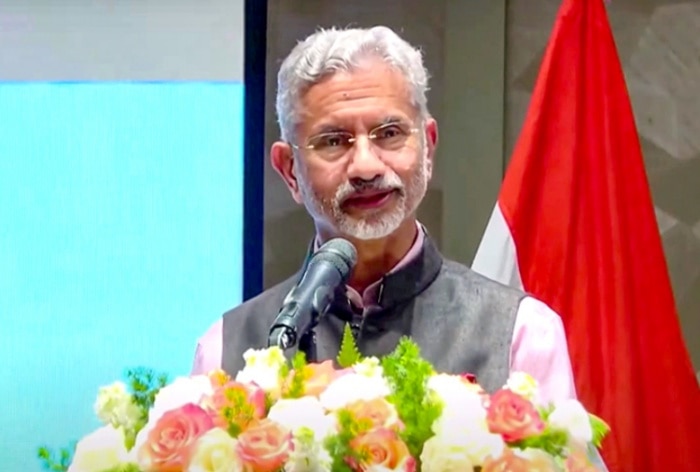
[ad_1]
EAM S Jaishankar said much of the information on the interference by Canadian diplomats in India’s internal affairs has not been made public yet.

New Delhi: External Affairs S Jaishankar Sunday said New Delhi invoked parity with Canada with regards to diplomatic presence as the government had “concerns about continuous interference in our affairs by Canadian personnel.
Refuting claims that India violated the Vienna Convention on diplomatic relations, Jaishankar said “Parity is very much provided for by the Vienna Convention, which is the relevant international rule on this. But in our case, we invoked parity because we had concerns about continuous interference in our affairs by Canadian personnel.”
However, the EAM said much of the information on the interference by Canadian diplomats in India’s internal affairs has not been made public yet.
Jaishankar said if India will resume issuing visas in Canada if “we see progress in safety of our diplomats”. He also stated that India has a problems with a “certain segment” of Canadian politics, while admitting that India-Canada ties are currently going through a difficult phase.
“Relationship right now is going through a difficult phase,” he said.
US, UK back Canada in diplomatic standoff with India
Meanwhile, the United Kingdom on Saturday said it disagrees with New Delhi’s decision to oust 41 Canadian diplomats from India while the US flagged concern over the deepening diplomatic standoff between India and Canada which was triggered after Canadian Prime Minister accused India of orchestrating the assassination of Khalistani separatist leader Hardeep Singh Nijjar on Canadian soil.
A statement from the UK’s Foreign, Commonwealth and Development Office (FCDO) on Friday said the move impacted the effective functioning of the Vienna Convention on Diplomatic Relations while the US State Department stressed that resolving differences requires diplomats on the ground.
The statements from the two nations came after Canada withdrew 41 diplomats following an alleged Indian threat to unilaterally revoke their status amid strained bilateral relations between the New Delhi and Ottawa.
On Friday, India’s Ministry of External Affairs (MEA) strongly rejected the allegation and also refuted any violation of the Vienna Convention in relation to the Canadian diplomats’ exit.
“We reject any attempt to portray the implementation of parity as a violation of international norms,” the MEA statement said.
In London, the FCDO statement pointed out that “resolving differences requires communication and diplomats in respective capitals.”
“We do not agree with the decisions taken by the Indian government that have resulted in a number of Canadian diplomats departing India,” it said.
“We expect all states to uphold their obligations under the 1961 Vienna Convention on Diplomatic Relations. The unilateral removal of the privileges and immunities that provide for the safety and security of diplomats is not consistent with the principles or the effective functioning of the Vienna Convention. We continue to encourage India to engage with Canada on its independent investigation into the death of Hardeep Singh Nijjar,” it said.
(With inputs from agencies)
[ad_2]